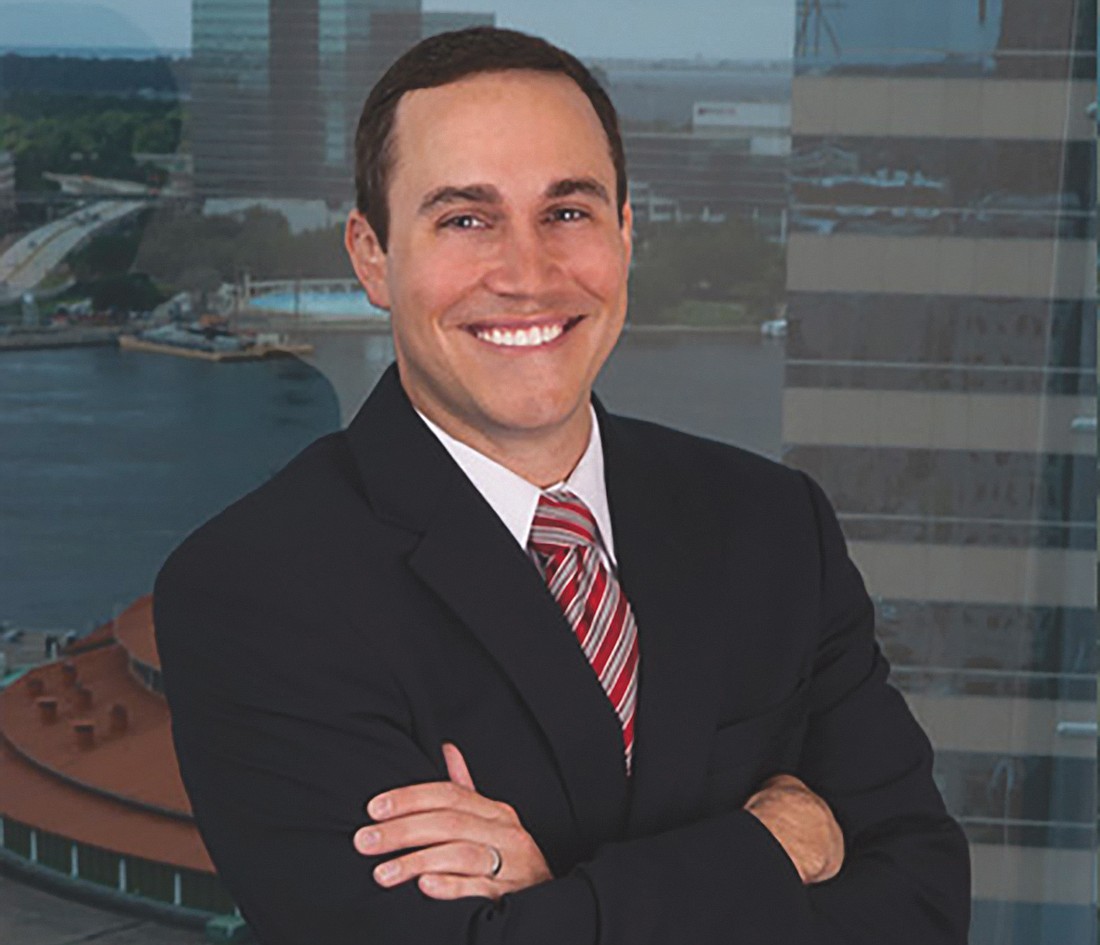
Michael Fox Orr, managing shareholder at the Dawson Orr law firm, is seeking election to The Florida Bar board of governors.
He was president of The Florida Bar Young Lawyers Division in 2013-14 and was president of The Jacksonville Bar Association Young Lawyers Section board in 2011-12.
He currently serves on the JBA board of governors.
Who or what inspired you to become a lawyer?
My older sister, who faced numerous challenges growing up with special needs and a rare syndrome, inspired me to help people and recognize that everyone faces unique challenges. My parents likewise faced challenges through their work and raising my sister (along with my wild siblings and me). I grew up believing I could always do more, and that becoming a lawyer was the best way I could help people.
One person (other than your spouse or partner) who inspires you: My law partner, Carl Dawson. After 66 years of practicing in Jacksonville, he recently retired at 90 years old. He has tried more than 1,500 civil jury trials and inspires me to live my clients’ cases and work hard, especially when nobody is watching.
How do you relate your undergraduate degree to your practice of law?
My undergraduate degree was in finance. Business and civil litigation necessarily involve business issues and/or damages. The analytical thinking in finance also was beneficial as it relates to case valuation.
How did you decide your practice area? And why have you chosen that?
I wanted to be in the courtroom and practicing in the fields of business and civil litigation provide me that avenue.
What has been the biggest change in your practice area since you passed the Bar?
Technology. We e-file. We e-serve. We tweet. We post. We conduct e-discovery. The volume of email has exponentially increased. The systems used by lawyers are more sophisticated and aim to guard against a variety of viruses and data breaches. Years ago, lawyers could go home at a certain time and expect that they would likely not be communicating with a client or opposing counsel. Now, those communications extend into the night and on weekends.
What do you think will be the next big change in your area of law?
While I continue to believe technological advances will continue to be the “next big change,” I think technological and societal changes will result in a shift of the work-life balance, alternative legal service delivery models, and alternative billing models in the civil litigation arena. Of course, these changes will likely apply to many different areas of law.
If I could change anything in the legal system, I would:
Foster better access to the courts, consider a new approach to discovery to reduce the time from a lawsuit’s inception to trial, eliminate gender bias, secure a properly funded judiciary and increase the health and wellness of lawyers battling an ever-changing and demanding market for legal services. Those are just the tip of the iceberg as I think the best legal system in the world can constantly evolve for the betterment of all those involved.
What community service have you pursued and why that?
I have volunteered for several community service organizations, but Special Olympics is very close to my heart. I started working with Duval County Special Olympics over 13 years ago and have assisted in funding and volunteerism over the years. I also served the Family Nurturing Center of Florida and the Clara White Mission. All of these programs are designed for helping people, families and the less fortunate, which remind me of the reason I became a lawyer.
What’s your advice for new lawyers?
Get involved. Find a mentor. Work hard. If you make a mistake, own it and get better. Pursue what you enjoy as soon as possible. You have to be happy. Along those lines, you need to disconnect from the practice and the rest of the world. Find an outlet to enjoy your life. We all internalize the stresses of our clients, but we must first address our own stress.